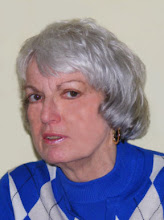The marketing of drugs in this country is out of control.
The pharmaceutical industry has become extraordinarily adept at creating medicines that are perhaps less than 1% different than drugs already on the market and then trumpeting "a new, better drug" to deal with such and so a disease. In some cases, the industry takes a problem which is relatively small, exaggerates the extent and number of people with this "problem" and presto, presents the solution to this problem with a new pill. In the August 20, 2009 edition in my paper, the Gainesville Sun, comes this sentence: "A growing body of evidence suggests that doctors at some of America's top medical schools have been attaching their names and lending their names to scientific papers that were drafted by ghostwriters working for drug companies- articles that were carefully calibrated to help the manufacturer sell more drugs." So who do you believe now and where do you get real facts?
And where is the FDA in all of this? According to Melody Petersen, in "Our Daily Meds", the bar for approving new drugs is so low as to be be laughable if it were not so serious. All a company has to prove is that their new drug is better than a placebo....in other words, better than no treatment at all. There is no requirement that drugs for the same ailment be tested so than the FDA can compare effectiveness. It just has to be better than "nothing" (a placebo) and the marketing begins.
Serious marketing of a drug for as many purposes as possible is perhaps best shown in the story of Neurontin. This drug was approved as a drug to treat epilepsy when a primary epilepsy drug was not successful. But doctors began to use it for many other purposes, for instance in the treatment of manic-depressiveness. This is a practice that is called "off-label" use. Pushing products for "off-label" use is illegal but the company that produced Neurontin did it anyway. Complaints began to pour into the FDA because of the side effects of the "off-label" use of Neurontin.
In May, 2004, Warner Lambert, then a division of Pfizer pleaded guilty to criminal charges in their marketing of Neurontin and agreed to a $430 million dollar fine.
From January 23, 2002 until May 8, 2002, my psychiatrist in Gainesville, FL, who still does extensive clinical trials for drug companies prescribed Neurontin for me for a non-existent case of manic-depressiveness. Another drug he prescribed for my non-existent manic depression helped to worsen a severe kidney dysfunction. For more details, see my book, "Surviving High Society".
Thursday, August 20, 2009
Subscribe to:
Post Comments (Atom)



No comments:
Post a Comment